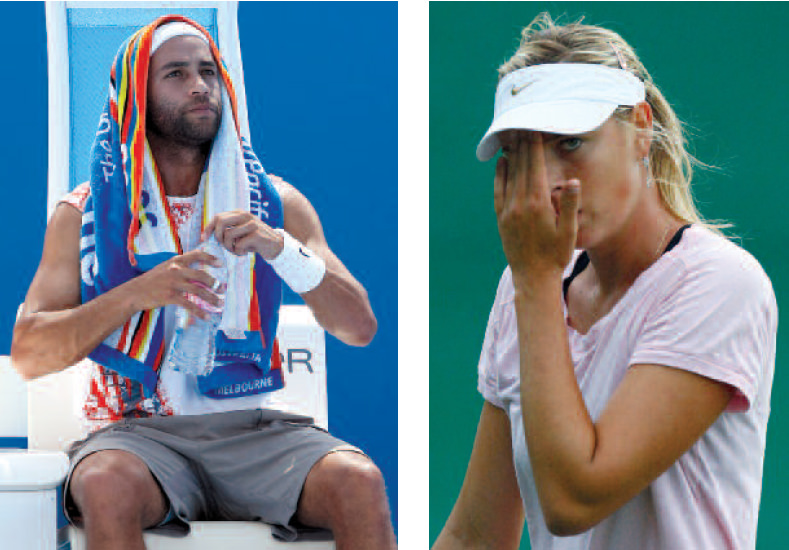August 9th, 2016
USTA Sport Science: Tennis Heat & Hydration Q&A

Answer: Water is a great drink for low to moderate intensity activities that last less than an hour. However, for activities that last more than an hour, a carbohydrate and electrolyte sports drink may be more beneficial.
* Flavored drinks encourage drinking, especially in younger athletes.
* Water turns off thirst mechanism before fully hydrated.
* Water lacks carbohydrates (energy) and electrolytes to help tennis players perform at their best over long periods.
Question: Does wearing dark clothes in the heat make a tennis player more susceptible to heat illness and dehydration?
Answer: The color of clothing can affect heat gain. White clothing reduces radiative heat gain and the subjective feelings that players have of how hot it is. Black clothing increases radiative heat gain and players feel that it is hotter than if they were wearing white clothing.
Question: Don’t sports drinks have too much salt?
Answer: Most sport drinks have about 110mg of sodium per 8 oz. of fluid. This amount is classified by the Food and Drug Administration as a low-sodium beverage. Most sports drinks have less sodium than is lost in an athlete’s sweat, especially in hot and humid conditions, and should not typically be a concern.*
Question: Are bananas a great on-court snack to prevent muscle cramping?
Answer: Although bananas have been a staple in a tennis player’s diet for decades, the actual benefits for prevention of muscle cramps is limited. Bananas are high in potassium and this was once thought of as an important electrolyte in muscle cramping. However, potassium is low in sweat and is not a major factor in muscle cramping. Sodium is the major electrolyte lost in sweat.
Question: What is hyponatremia?
Answer: Hyponatremia is a form of water intoxication. This happens when an athlete consumes only water and sweats out large amounts of sodium, which results in diluting the fluid throughout the body. This can cause major physiological problems and is of most concern post-training or matchplay when the athlete is rehydrating. Remember that if the athlete is sweating a lot, it is important to rehydrate with fluids that contain enough electrolytes, so as not to dilute the fluids in the body.
* Disclaimer: Sodium (salt) should not be consumed in large amounts if you have high blood pressure and/or a heart or kidney condition.
Acknowledgements:
This material was compiled by the USTA national body with the assistance of the following individuals:
Mark Kovacs, PhD, CSCS — Manager of Sport Science
Michael Yorio, MD — US Open Tournament Physician
Jessica Battaglia, MS, ATC/L — Assistant to Coaching Education and Sport Science
Paul Lubbers, PhD — Director of Coaching Education
Paul Roetert, PhD, FACSM — Managing Director of Player Development
Please see the USTA Player Development website for more information on heat and hydration issues at www.playerdevelopment.usta.com.


